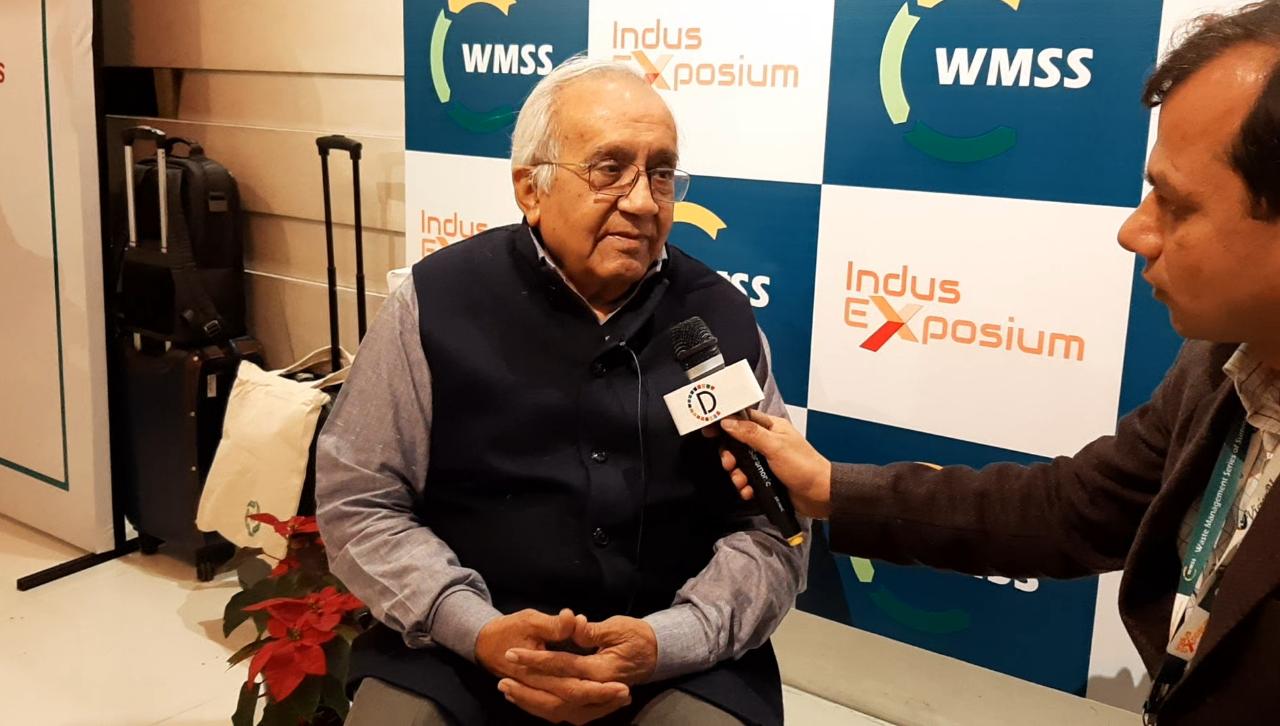Circular Economy should not create undesirable byproducts: Dr. Kirit Parikh
Packaging companies such as Amazon are creating huge amount of waste which is directly going into dumping sites, said Dr. Parikh. He strongly advocated for imposing appropriate cost on industries for the waste they produce.

- Country:
- India
Eminent economist Dr. Kirit Parikh has emphasized the need for giving thoughts on byproducts generated in the technologies used for waste management and circular economy so that they do not create problems in future. Parikh expressed these views in his ‘Key Note Address’ in 2-days ‘Waste Management Series of Summits (WMSS) 2020 inaugurated on Thursday in New Delhi.
“Every technology used for recycling of waste, generates some byproducts. We need to give thoughts on byproducts, Circular Economy should not create undesirable byproducts,” said Parikh urging the scientists to present a financially viable solution of waste management for corporate sector and feasible alternatives for consumers. Dr. Parikh is presently Chairman of Integrated Research and Action for Development (IRADe), New Delhi. He has been a Member of the Planning Commission of India rechristened as NITI Aayog and worked as a member of the Economic Advisory Council (EAC) with several prime ministers of India such as Atal Bihari Vajpayee, P. V. Narasimha Rao, Chandra Shekhar, V. P. Singh, and Rajiv Gandhi.
Addressing the experts of diverse disciplines and professional backgrounds including corporates, Dr. Parikh strongly advocated for taxation on pollution. “If we impose appropriate cost on industries for disposal, they would come to incentivize the waste management,” opined Parikh advocating profitable solutions for waste management. “The kabariwalas collect some waste such as paper and metal scrap. If waste collection is incentivized to make it profitable, the waste collection and recycling will become a viable option. People already pay for sewage which is the waste water they generate. Some countries are already charging households for the waste they generate. We can go for charging households for the waste generation,” he added. He emphasized that a holistic solution for waste management is required for all kinds of waste from municipal waste to hazardous waste to waste water and nuclear waste etc. “Waste management is also a crucial sector from the perspective of job creation as besides collection hi-end technologies and research are also involved in the waste management,” said Parikh adding the government should need to find out other new areas for job creation.
Commercial Waste is a Huge Problem
Dr. Parikh highlighted that the companies working in e-Commerce sector are generating huge amounts of waste. “Commercial waste is a huge issue. Packaging material being used by Amazon particularly single used plastic has become a huge problem for waste management. Distributors and packagers are creating huge waste in India,” said Dr. Parikh. He strongly advocated to make the distributors and packagers responsible for waste management of the waste they produce. “The government should impose appropriate tax and come out with adequate monitoring and regulatory mechanism," he suggested.
Waste Dumping by Developed Economies
Dr. Parikh cautioned on waste dumping being practiced by developed economies to dump their waste in developing economies. “Waste dumping is not a new practice. Developed economies dump their plastic and hazardous waste in developing countries such as Africa and Asia. I don't have a problem if a company imports plastic to make bricks but if you are bringing plastic which is going into our dumping sites, there is a big issue,” said Parikh. The government agencies need to bring regulatory and monitoring mechanism against waste dumping, he suggested. He also cautioned that distributing and packaging companies may be using single-use plastic to dump plastic waste of developed economies in India.
Dr. Parikh holds a Doctor of Science in Civil Engineering and a Master's Degree in Economics from MIT, USA. He is Former (Founder) Director (Vice Chancellor), Indira Gandhi Institute of Development Research (IGIDR), Mumbai.
Also Read: WMSS 2020 opens with discussions on how to strategize waste management system
For more news and views on waste management, please visit Live Discourse on Waste Management Series of Summits (WMSS 2020) being organized by Indus Exposium on 30th - 31st January 2020 in New Delhi.
ALSO READ
Urgent Call to Action: Revamping Waste Management in NCR
Amazon Eyes $10B Investment in AI Powerhouse OpenAI
Amazon's Bold Move: Potential $10 Billion Investment in OpenAI
Revolutionizing Waste Management: Evergreen Future's Ecogenik Launch
OpenAI's Ambitious Funding Push: A $10 Billion Deal from Amazon










